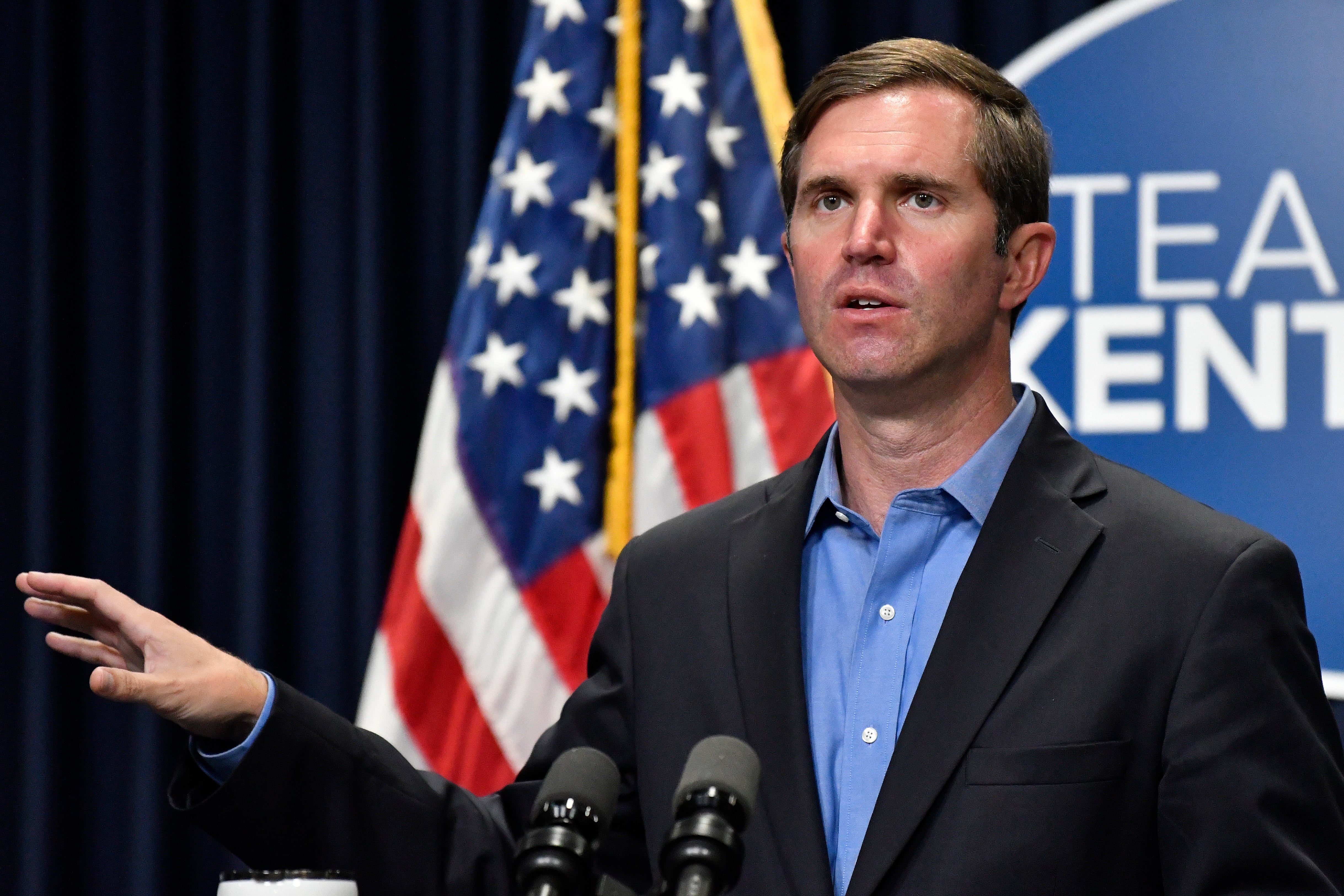Pandemic nurse shortage: Kentucky gov declares an emergency
Kentucky's governor has declared an emergency over the state's chronic nursing shortage amid the ongoing coronavirus pandemic

Your support helps us to tell the story
From reproductive rights to climate change to Big Tech, The Independent is on the ground when the story is developing. Whether it's investigating the financials of Elon Musk's pro-Trump PAC or producing our latest documentary, 'The A Word', which shines a light on the American women fighting for reproductive rights, we know how important it is to parse out the facts from the messaging.
At such a critical moment in US history, we need reporters on the ground. Your donation allows us to keep sending journalists to speak to both sides of the story.
The Independent is trusted by Americans across the entire political spectrum. And unlike many other quality news outlets, we choose not to lock Americans out of our reporting and analysis with paywalls. We believe quality journalism should be available to everyone, paid for by those who can afford it.
Your support makes all the difference.Kentucky s governor declared the state's chronic nursing shortage to be an emergency Thursday, taking executive actions amid the ongoing coronavirus pandemic to boost enrollment in nurse-training programs.
Kentucky is projected to need more than 16,000 additional nurses by 2024, to help fill gaps caused by retirements and people leaving the profession, Gov. Andy Beshear said. His new executive order includes “immediate actions that we believe will provide some relief," the Democratic governor said. "Obviously long term there is a lot to do.”
The nurse staffing emergency in Kentucky reflects a national epidemic created by the pandemic. Health leaders say the problem is twofold: Nurses are quitting or retiring, exhausted or demoralized by the crisis. And many are leaving for lucrative temporary jobs with traveling-nurse agencies.
Such severe shortages threaten “not only the health of patients but the entire health care delivery system,” Beshear said at a news conference.
He added that Kentucky is operating 12% to 20% short of “needed nursing volume.”
“In the midst of a pandemic, and in the midst of a shortage this dire, we’ve got to do things a little bit differently, to make sure that we get the results we need at the time that we need them the most,” the governor said.
His executive order aims to get more students into Kentucky nursing programs.
It requires the state Board of Nursing to approve requests for enrollment increases from schools that show sufficient resources to accommodate more students, he said.
Nursing schools will be expected to report the number of vacant student slots to the state nursing board each month, the governor said. Those vacancies will be posted on the board’s website to let prospective students know where spots are available.
The order aims to allow nursing schools to open new campuses more quickly, provided they have sufficient resources, he said. Nursing schools at full capacity will be required to refer qualified student applicants to other schools with vacancies, he said.
And schools unable to accommodate their full student capacity due to staffing shortages will be expected to notify state officials, with the goal of helping them hire more faculty, he said. Also, an advisory committee will be formed to offer additional proposals to overcome nursing shortages.
The governor also signaled that his upcoming state budget package will include proposals to attract and retain nurses. His plan will include some form of loan forgiveness or scholarship program for nurses who agree to remain in Kentucky for a designated amount of time, Beshear said. The governor will present his budget plan to the Republican-dominated legislature in early 2022.
Also, nurses who worked throughout the pandemic will be included in his proposal to award essential-worker bonuses. Beshear said he wants to use $400 million in federal pandemic aid to award the extra pay to a range of frontline workers employed throughout the pandemic.
Beshear made another pitch for the bonuses in hopes of winning support from GOP lawmakers.
“This isn’t about process, this isn’t about party," he said. "This is about the people that have kept us alive, kept us safe, kept us healthy, kept us fed, kept us safely in our home with our lights and our heat on during this pandemic. Saying no to this program is saying no to them.”
It's the second straight day the governor took executive action to confront a nagging state problem.
On Wednesday, Beshear awarded a 10% pay raise to Kentucky’s social service workers. The pay boost is aimed at halting the widespread loss of frontline employees demoralized by low salaries and bulging workloads who are serving vulnerable children and adults.
The pay increase takes effect Dec. 16 for social workers and family support services staff, the governor said. It’s the result of his action to reclassify their jobs to a higher grade.